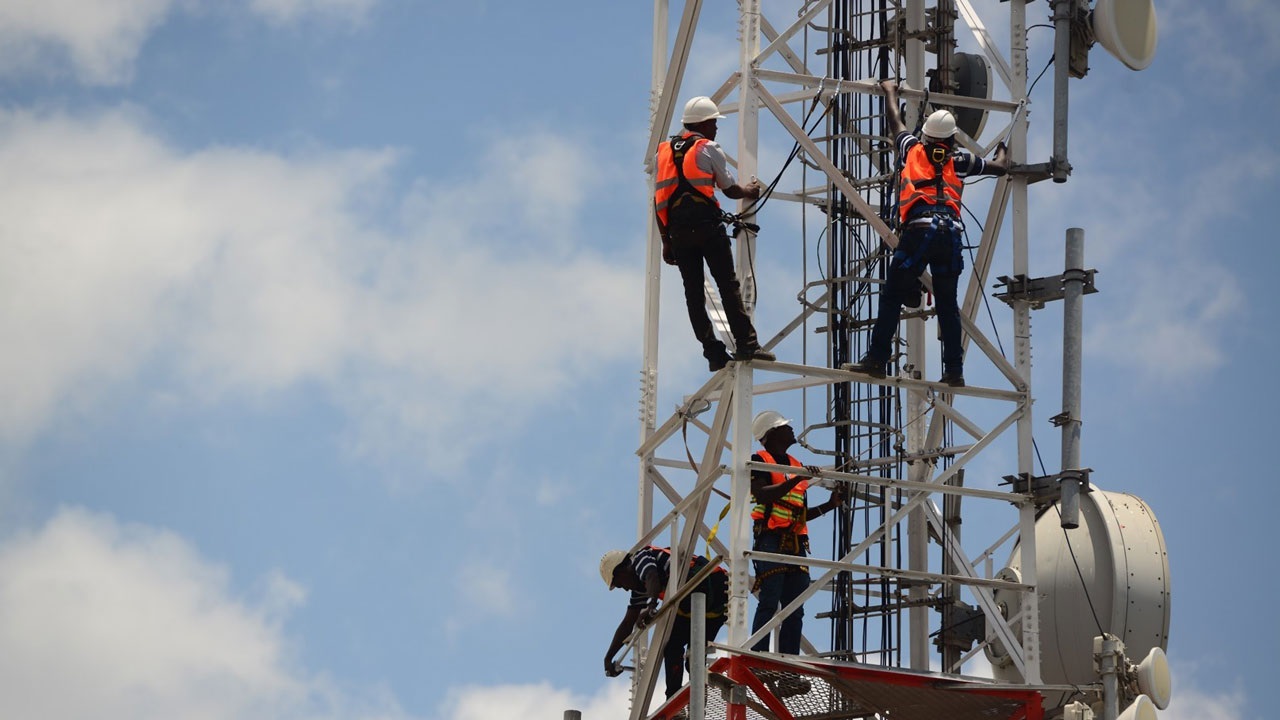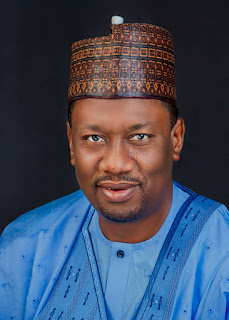News
Lagos-Calabar highway: Telcos fear shutdown as construction threatens cables

Barely 48 hours after Multichoice alerted subscribers to a three-day technical downtime, telecommunication companies have expressed concern over possible connectivity disruptions as construction advances on the 700km Lagos-Calabar Coastal Highway.
While the DStv and GOtv owner acknowledged the anticipated impact of the ongoing Lagos-Calabar construction project on their uplink facilities, telcos on Sunday expressed broader concerns emphasising the vital role of telecommunication service and the effect of possible anticipated technical disruption.
The Lagos-Calabar coastal highway corridor serves as a crucial landing point for multiple submarine cables connecting Nigeria to Europe
The cables, including the West Africa Cable System (WACS), MainOne, Glo1, ACE, and NCSCS, are vital for international communications and data transmission in the country.
The Federal Executive Council approved Phase One of the ambitious 700-km Lagos-Calabar coastal highway project in February, entrusting the task to Hitech Construction Company Limited.
The highway project was designed to connect Lagos to Cross River, passing through the coastal states of Ogun, Ondo, Delta, Edo Bayelsa, Rivers, and Akwa Ibom, before culminating in Cross River.
Meanwhile, the demolition of numerous properties and recreational centres in Lagos has been carried out to expedite the construction of the highway.
In light of the developments, telcos stressed the necessity of stakeholder consultations with the Ministry of Works to address potential risks and implement robust mitigation measures.
While dialogue with the Federal Government is yet to happen, telcos have warned Hitech Construction to exercise caution to prevent damage to critical national infrastructure.
Speaking with The PUNCH on Sunday, the Chairman of the Association of Licensed Telecom Operators of Nigeria (ALTON), Gbenga Adebayo, confirmed that the Ministry of Works had yet to engage the telcos on environmental impact assessment.
The ALTON chairman said the Ministry of Works, headed by David Umahi, had engaged some stakeholders but excluded the telecom operators.
“The Ministry of Works has not approached us, and I’m unsure if environmental impact assessments have been conducted. The route is crucial for the landing of numerous submarine cables, so caution is essential.
“Some members have reached out to them, urging caution. As the chairman of the industry, I can affirm that ALTON members were not consulted regarding the assessment of the undersea cable within that right of way,” he explained.
Adebayo revealed that some of its members had written to the works ministry on the matter over the need for a dialogue. He however said the body had yet to get any response.
He added that the Nigerian Communications Commission had been engaged to facilitate talks with the ministry.
“We’ve informed the Nigeria Communications Commission about this issue, and they are attempting to contact the Ministry of Works. However, I can confirm that neither we nor any of our members were contacted. This is on record. We were not included in the stakeholder consultations, and we’re concerned about the actions being taken.”
According to Adebayo, the Lagos-Calabar coastal highway corridor facilitates international traffic into the country, with so much risk involved if caution is not applied by the construction firm.
“There’s a significant risk involved, and I advise carefulness. Any destruction could lead to total disruption and severe economic consequences. Caution must be exercised to avoid damaging this critical economic infrastructure.”
In March, service disruption caused by cuts to the undersea cable supplying broadband Internet connectivity to Nigeria and countries in the West African sub-region forced many banks and other financial institutions, as well as telecom companies and allied firms, to scale down their operations.
Experts said the recent subsea cable cut, which disrupted connectivity in West Africa on March 14, 2024, could result in collective repair costs of about $8m for the four digital infrastructure companies affected.
The Chief Executive Officer of West Indian Ocean Cable Company, Chris Wood, said the four digital infrastructure companies affected could spend as much as $8m each to repair a single cable.
The affected cables include MainOne Cable, the West African Cable System, the African Coast to Europe submarine cable, and the SAT3 subsea cable systems.
Wood highlighted that each affected cable firm might need to allocate between $1m and $2m for the complete restoration of a single subsea cable, depending on the severity of the damage incurred.
The WIOCC CEO stated, “It is not a few $100,000. It is several millions of dollars, maybe $1m to $2m per cable, depending on how long it takes the ship to find the cable and repair it.
“Maybe slightly more than that. And those costs are borne by the cable owners themselves. It is a cost that we will factor into our businesses because these things do happen.
“I can’t say exact figures because it depends on the nature of the cuts and how long it takes to repair them, but when you look at the four systems together, it is several $1m.”
According to Wood, it will cost Africa $1bn to lay new cable that will connect from Europe, connecting multiple African countries, including Nigeria.
He noted that it would take at least 10 years to design the project and finish building, noting that the cost would be huge.
“So, it is not a simple thing to say, right? Let’s lay more cables because ultimately somebody has to pay that billion dollars, and eventually it is the end user. So, there has to be a commercial justification for spending that kind of money.
According to the President of the Association of Telecommunications Companies of Nigeria, Tony Emoekpere, the ongoing construction work is yet to get close to the areas where the undersea cables and fibre cables are located.
However, he said it was crucial to recognise that all submarine cables to Lagos are situated along that coastal line.
“Discussions will ensure that the ongoing construction won’t affect them, with plans in place to prevent any disruption. Nobody will allow anything to happen without precautions.
“I spoke with someone this week who mentioned this. Concerns will naturally arise, and ongoing interactions will address them as the risk is significant. These are sensitive issues, and measures will be taken to ensure services aren’t disrupted along that line,” he added.
A few weeks ago, ALTON and ATCON jointly issued a statement expressing worries over wilful vandalism and theft as well as other challenges affecting the growth of the sector.
They requested the protection of assets and network infrastructure and urged the federal government to pass legislation that designates telecommunications infrastructure as critical national infrastructure.
Telecommunications infrastructure undoubtedly plays a pivotal role in national security and socioeconomic growth, especially as the country currently contends with multiple security challenges that require urgent and immediate actions in response to these threats.
“Attacks on cell towers, fibre optic cables, and other critical assets disrupt telecommunications services and result in significant financial losses for operators,” telcos lamented.
The telecom sector has been grappling with economic challenges that have significantly increased their operating costs, a situation that has dwindled appetite for investments.
Investment in the sector decreased by 70.5 per cent to $134m in 2023 from $456.8m in the corresponding year, according to the National Bureau of Statistics.
Last week, the ALTON chairman mentioned that telcos were becoming reluctant to invest more in infrastructure as they continued to contend with a tough economic environment.
Adebayo stated, “If you don’t invest in a sector, you can’t talk about quality of service; you can’t talk about right pricing. The government must help, and the time is now.”
He drew a comparison with the energy sector, where a lack of investment in infrastructure had led to decrepit substations and outdated transformers, some of which are 25–30 years old.
“When the people in the energy sector came, they licenced the DisCos; they sold them those companies and all of that, and everybody thought that would solve the problem. The answer is ‘no’ because when the DisCos came, they didn’t invest in infrastructure.
“We don’t want to come to a time where the telecom sector becomes like that. We need to continue to put the right policies and regulations in place to attract investment. It is only when we attract investment that we can demand a minimum level of performance,” he emphasised.
Multichoice subscribers demand compensation.
Customers of DStv and GOtv have voiced their discontent and called for compensation from Multichoice, the pay-TV operator, following a scheduled three-day “technical downtime” from May 5th to 7th, 2024.
The pay-TV operator, Multichoice, stated on Friday on X (formerly Twitter) that the Lagos-Calabar highway construction project would force them to relocate from their office location between May 5 and May 7, 2024, assuring customers that disruptions would be minimised during the relocation.
It stated, “Our uplink facility will be impacted by the ongoing Lagos-Calabar coastal road construction project. As a result, we are forced to relocate. From Sunday, May 5, 2024, to Thursday, May 7, 2024, our technical team will be working tirelessly to relocate and minimise disruptions during the exercise.”
It added, “We’re relocating our uplink facility due to the Lagos-Calabar coastal road construction. This means you might experience some technical downtime. Thank you for bearing with us during this transition.’’
The company assured that it would soon restore its services better than ever.
However, despite the proactive statement, some customers took to social media to express concerns and demand compensation from the operator.
Adeoye Oluwafemi stated, “I hope the three days offline will be added back to our subscription. There should be no cheating this time around.’
Stemeldamak said, ‘I hope you people will deduct the money for this technical downtime from the payment already made.
Victor inquired, “How will you people compensate for the loss during this period of interruption? This is because you’ve never left one day for a subscriber after the subscription elapses.’
Obajimiolaleka commented, “This ought to be done during the week, knowing fully well that weekends are full of activities such as football matches.”
Chukas Dandy noted, “I guess people’s subscriptions will still be running during this period of your relocation, even though your uplink will be off signal, or is there any plan of pausing the subscription until the uplink is restored.”
In April, the company announced an increase in the prices of its DStv and GOtv packages, four months after its last increment.
This recent increase in the price of its packages would make it the fourth time the PayTv company will do so in three years.
The PUNCH reached out to the Head of Corporate Affairs, MultiChoice, Caroline Oghuma, for comments on customers demanding compensation.
Caroline responded by sending a note stating, “Due to the ongoing Lagos-Calabar Coastal Road construction project and the potential impact it may have on DStv and GOtv services, from Sunday, May 5, 2024, a relocation exercise of our infrastructure that enables our uplink to satellite will commence.
“We understand how important it is to stay connected to your favourite channels, and we are working diligently to minimise any disruptions. Our technical teams are working round the clock to implement a quick relocation of the equipment and get the channels back up as soon as possible.
“We appreciate your patience and understanding during this period, and we remain dedicated to delivering the quality service and support you expect from DStv and GOtv.”
PUNCH
News
EMPOWERMENT! Senator Manu doles out N2.5m to support constituent’s fashion design business(Photos)

Senator Manu Haruna of Taraba Central Senatorial District has made a significant impact on the life of a constituent by empowering him with over 2.5 million Naira to enhance his fashion design business.
This initiative aims to support local entrepreneurship and encourage vocational skills development within the community.

The delegation representing Senator Manu included Hon. Aruwa, the Taraba State Commissioner for Science and Technology, alongside Hon. Abubakar Baffa Nanu, Chairman of Gassol Local Government Council, and Alhaji Raubilu Umar, Hon. Ubale Gambo. They presented the cash to Falalu, who is commonly referred to as Sarkin Yakin Manu in a gathering held at the residence of Alhaji Raubilu Umar in Jalingo.

Falalu Sarkin Yakin Manu expressed his heartfelt gratitude to Senator Manu for this generous support, highlighting how the funds will significantly boost his tailoring business and provide better services to the community.
This empowerment initiative reflects Senator Manu’s commitment to fostering skills development and economic growth in the Taraba Central Senatorial District.
News
Citizenship for sale as Trump announces “Gold Card” Immigration Plan, $5M

By Kayode Sanni-Arewa
President Donald Trump has announced a new immigration “Gold Card” that will be sold to immigrants for $5 million.
The Gold Card is a premium version of a Green Card, according to Trump, and will provide immigrants with a pathway to citizenship.
“We’re gonna be selling a gold card. You have a green card, this is a gold card. We’re gonna be putting a price on that card of about $5 million and that’s gonna give you green card privileges plus…”
“It’s gonna be a route to citizenship. And wealthy people will be coming into our country by buying this card.”
“They’ll be wealthy and they’ll be successful and they’ll be spending a lot of money and paying a lot of taxes and employing a lot of people.”
News
SAD! Lady Loses 3-Year-Old Son Hours After Allowing Father Take Him for Weekend Visit

By Kayode Sanni-Arewa
A Nigerian lady has taken to social media to share the heart rending story of how she lost her three-year-old son hours after allowing his father to take him for the weekend.
The sad mother, who had single-handedly raised her son after being abandoned during pregnancy, expressed deep sorrow and regret over her decision to let his father back into their lives.
According to her, the child’s father had denied responsibility when she was pregnant and made no effort to be part of their son’s life until he returned from abroad, got married, and sought forgiveness. In an attempt to foster a relationship between father and son, she allowed him to take the boy for a weekend visit—an act she now deeply regrets.
Tragically, less than nine hours after leaving with his father, the little boy drowned in a deep well. The devastated mother, who had just returned from work, was met with the shocking news that her only child was gone forever.
In a post, she poured out her grief, questioning why such a tragedy had befallen her innocent child.
“Junior was only 3; he didn’t deserve to leave this world so soon. God, why?” she lamented.
May the soul of the little boy rest in peace.
-

 News21 hours ago
News21 hours agoUS dumps UK, others from visa-free entry for 2025
-

 News23 hours ago
News23 hours agoT-Plan Warns About Rising Drug Addiction Among Youths, Housewives
-

 News21 hours ago
News21 hours agoTraditional doctors protest alleged witch-hunt by Soludo’s administration
-

 News13 hours ago
News13 hours agoNigerian Professional Footballer Abubakar Lawal Dies in Uganda
-

 News21 hours ago
News21 hours agoSad! Midnight f!re engulfs Ladipo, Owode Onirin markets in Lagos
-

 News20 hours ago
News20 hours agoTransporter Frowns At PTD Strike, Says Union Will Force Govt To Use Rail As Mobility Alternative In Lifting Petroleum Products
-

 News19 hours ago
News19 hours agoReps Advocate Tax Exemption, Better Support for Persons With Disabilities
-

 Sports12 hours ago
Sports12 hours agoChelsea emphatic win against Southampton gives them hope of top four finish







